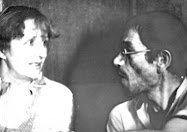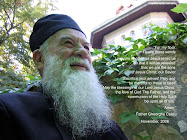 Prim-ministrul
Vlad Filat a prezidat astăzi prima şedinţă a Comisiei guvernamentale
pentru integrare europeană. În cadrul şedinţei, Natalia Gherman,
Vice-ministru al Afacerilor Externe şi Integrării Europene,
negociator-şef al Republicii Moldova pentru Acordul de Asociere cu
Uniunea Europeană, a făcut o prezentare a acţiunilor întreprinse în
2009 la capitolul integrare europeană şi a acţiunilor ce urmează să fie
întreprinse în 2010.
Prim-ministrul
Vlad Filat a prezidat astăzi prima şedinţă a Comisiei guvernamentale
pentru integrare europeană. În cadrul şedinţei, Natalia Gherman,
Vice-ministru al Afacerilor Externe şi Integrării Europene,
negociator-şef al Republicii Moldova pentru Acordul de Asociere cu
Uniunea Europeană, a făcut o prezentare a acţiunilor întreprinse în
2009 la capitolul integrare europeană şi a acţiunilor ce urmează să fie
întreprinse în 2010. De asemenea, Natalia Gherman a făcut o prezentare privind organizarea procesului de pregătire a instituţiilor Republicii Moldova pentru lansarea procesului de consolidare a capacităţilor instituţionale ale statului în vederea negocierii şi implementării Acordului de Asociere, precum şi pentru implicarea consilierilor de rang înalt în acest proces.
Vice-ministrul a comunicat că, în perioada 1-3 martie, 2010 la Chişinău se va afla Misiunea Comisiei Europene pentru discuţii exploratorii pe marginea dialogului privind liberalizarea regimului de vize şi a solicitat autorităţilor centrale să fie pregătite de întrevederea cu experţii Misiunii.
Natalia Gherman a spus că Republica Moldova are misiunea de a convinge Comisia Europeană despre necesitatea liberalizării regimului de vize pentru cetăţenii moldoveni şi trebuie să dovedească că întreprinde acţiunile ce se impun la acest capitol.
În context, Prim-ministrul Vlad Filat a spus că liberalizarea regimului de vize pentru cetăţenii Republicii Moldova este o prioritate a Guvernului şi a solicitat eforturi maxime la acest capitol.
Premierul a spus că UE va oferi Republicii Moldova ajutor financiar în valoare de 2 mln. euro pentru asigurarea populaţiei cu paşapoarte biometrice, condiţie necesară pentru liberalizarea regimului de vize. Suportul financiar va contribui şi la reducerea cu 33% a costurilor pentru aceste paşapoarte.
Vlad Filat a cerut Ministerului Dezvolătrii Informaţionale şi Comunicaţiilor să prezinte în cel mai scurt timp, o analiză privind termenii de realizare a Strategiei privind asigurarea populaţiei cu acte de identitate biometrice.
Premierul a mai spus că îşi doreşte ca la şedinţele Comisiei guvernamentale pentru integrare europeană să fie discutate probleme, şi nu realizări.
„Realizările trebuie să le simtă cetăţenii. Noi trebuie să discutăm despre problemele care există şi să găsim soluţii", a precizat Prim-ministrul.
Comisia guvernamentală pentru integrare europeană se va întruni lunar, anunţă Serviciul de presă al Guvernului.
Interlic.md
New Hampshire bill would ban biometrics in ID cards
February 10, 2010
But at least two trade groups oppose the legislation, saying biometrics technology has a number of security benefits, namely around ID management.
The bill would prohibit biometrics data, including fingerprints, retinal scans and DNA, from being used in state or privately issued ID cards, except for employee ID cards. In addition, it would ban the use of ID devices or systems that require the collection or retention of an individual's biometric data.
Under the bill, biometric data would also include palm prints, facial feature patterns, handwritten signature characteristics, voice data, iris recognition, keystroke dynamics and hand characteristics.
“That's the kind of information the government shouldn't generally require to be gathered about an individual,” New Hampshire Rep. Daniel Itse, who co-sponsored the bill, told SCMagazineUS.com on Wednesday.
But the bill has drawn criticism from several organizations, including the Security Industry Association (SIA), a business trade group covering the electronic and physical security market.
“SIA firmly believes that the broad restrictions proposed by [the bill]… reflects a significant misunderstanding of the security features and privacy safeguards of this widely-adopted technology," the group said in a statement.
SIA encouraged a New Hampshire House committee to reject the bill and conduct a study into the merits of biometrics technology.
This is the only pending bill of its kind in the nation, but in the past there have been similar legislative actions taken in opposition of biometrics technology, Don Erickson, director of government relations for SIA, told SCMagazineUS.com on Wednesday.
“We are concerned about seeing a pattern of these bills start to pop up in states, which will result in a patchwork of different laws that organizations would have to comply with,” Erickson said.
A similar bill, introduced several years ago in Pennsylvania to limit the use of biometrics, was never acted on, Erickson said.
In contrast, numerous bills have passed at the state and federal levels to authorize and implement systems that use biometrics technology for personal identification, Walter Hamilton, chairman and president of the International Biometric Industry Association (IBIA), a nonprofit trade association representing developers, manufacturers, and integrators of biometrics, told SCMagazineUS.com on Wednesday.
“We think it's inappropriate to single out a technology and say, 'Thou shall not use,'” Hamilton said. “We think there are many examples of useful applications where it protects citizens.”
The use of biometrics can thwart fraud and identity theft by ensuring a person is who they claim to be, he said.
The bill was introduced in January in the New Hampshire House Commerce and Consumer Affairs Committee. It was the subject of a public hearing Tuesday and is scheduled for discussion Thursday in an executive session of the committee.
SCMagazine
Polish Priest Measures Parishioners' Piety With Fingerprint Scanner
Aside from the Good Lord, parishioners at a Catholic church in Poland will soon have another seemingly omnipresent being making sure they attend mass: technology. According to Reuters, father Grzegorz Sowa recently installed in his church an electronic fingerprint scanner that keeps track of how often schoolchildren attend mass. If a student attends mass 200 times over a three-year period, he or she doesn't have to pass an exam before confirmation.
Formerly, the kids would have to get the priest to sign a sheet of paper that said they'd been present at mass. Now, they'll simply press their finger to a screen and be on their way, saving both priest and parishioner time. "This is comfortable. We don't have to stand in a line to get the priest's signature [confirming our presence at the mass] in our confirmation notebooks," said a student named Karolina.
While the Catholic Church still hasn't totally embraced technology, recent years have seen it become a little more open. Pope Benedict XVI even said he's cool with Facebook and MySpace, sorta. Hey, it's all about baby steps -- tiny, tiny baby steps. After all, Rome wasn't built in a day, and, for that matter, neither was the Vatican. [From: Reuters]


























































2 comments:
Fratilor moldoveni nu va lasati cumparati de dictatura biometrica occidentala care nu ofera nici o securitate intrinseca, ci dimpotriva esti mult mai predispus furarii identitatii.
Asta este numai inceputul.stati asa si tineti-va bine.trenul liberalilor a ajuns si in gara chisinau.
imediat vine si rapidul cu vagoane pline de legi gata ticluite:
legalizarea casatoriilor intre pederasti si lesby, programarea familiilor sub o atenta monitirzare, spatiu de manevra pentru sectanti, blocarea pe toate caiile de predare a religiei in scoala.
apropo recent sefa delegatiei RM la Cnsiliul Europei, deputat PL, a votat pentru legalizarea avorturilor.subiect care intamplator? nu a fost apropae deloc mediatizat de presa de la Chsinau.interesant nu?
Post a Comment